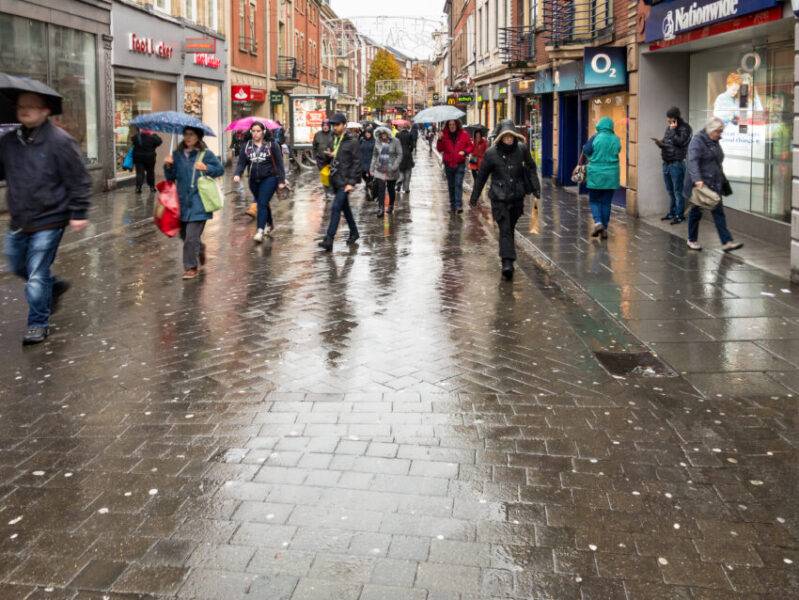The UK economy failed to grow in April, with heavy rainfall significantly dampening consumer spending. According to the Office for National Statistics (ONS), economic activity remained flat for the month, aligning with economists’ forecasts.
This stagnation comes on the heels of the UK recording its fastest economic growth in two years from January to March, effectively pulling the country out of the recession experienced in the latter half of last year. The economy’s performance is a critical issue for the main political parties as they gear up for the general election on 4 July.
Despite an increase in spending on services for the fourth consecutive month, this was counterbalanced by declines in production and the construction sector. The UK’s gross domestic product (GDP), which gauges the value of goods and services produced over time, had grown by 0.4% in March.
Certain sectors of the services industry outperformed others, with significant growth in the information, communication, and scientific sectors. However, retail trade suffered, with many businesses attributing lower output to the wet weather, which saw rainfall well above the long-term average.
Consumer-facing services saw a 0.7% decline in output, reflecting ongoing struggles with the high cost of living. However, economists caution against over-interpreting monthly economic fluctuations, which can be influenced by factors like weather or the timing of holidays such as Easter.
Overall, the economy showed a 0.7% growth over the three months to April, compared to the February to April period. These figures will be crucial for the Bank of England’s next meeting, where decisions on interest rates will be made.
Many households continue to face financial pressure from rising energy and food prices, as well as higher mortgage payments driven by increased interest rates. The central bank has been raising rates in an effort to control inflation.
The latest data comes amid the third week of election campaigning, where economic promises have been central. Chancellor Jeremy Hunt expressed optimism, stating that the data indicated the economy “is turning a corner.” He added, “Under the Conservatives, we can keep the economy growing with our clear plan to cut taxes on work, homes, and pensions.”
In contrast, Labour’s Shadow Chancellor Rachel Reeves pointed to the flat growth in April, criticising the long-term impact of Conservative policies. “These figures expose the damage done after fourteen years of Conservative chaos,” she said.
Liberal Democrat Treasury spokesperson Sarah Olney remarked, “As Rishi Sunak’s time as prime minister peters out, so does the UK’s economic growth,” reflecting the political tensions surrounding the economic situation as the election approaches.


